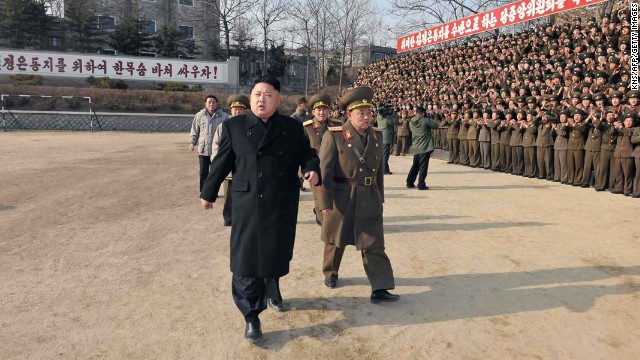Story highlights
- U.N. report warns North Korean leader Kim Jong Un that he could be prosecuted
- Widespread abuses are meant to terrorize "the population into submission," panel says
- Group says it will refer its findings to the International Criminal Court
- North Korea calls the report fake, says it's an effort to undermine the government
A stunning catalog of torture and the widespread abuse of even the weakest of North Koreans reveal a portrait of a brutal state "that does not have any parallel in the contemporary world," a United Nations panel reported Monday.
North Korean leaders employ murder, torture, slavery, sexual violence, mass starvation and other abuses as tools to prop up the state and terrorize "the population into submission," the United Nations Commission of Inquiry on Human Rights (COI) in North Korea said in its report
The commission said it would refer its findings to the International Criminal Court (ICC) for possible prosecution. It also sent a letter warning North Korean leader Kim Jong Un that he could face prosecution for crimes against humanity, and said other options include establishing of an ad hoc tribunal by the United Nations.
Even before the report's release, China, a permanent member of the U.N. Security Council and staunch ally of North Korea, has said it would not to allow human rights charges to proceed to the ICC.
The almost yearlong investigation traced the abuses directly to the highest levels of the North Korean government while simultaneously blaming world leaders for sitting on their hands amid untold agony.
The U.N. panel released its 400-page report after hearing from more than 320 witnesses in public hearings and private interviews.
North Korea is a state, it concluded, "that does not content itself with ensuring the authoritarian rule of a small group of people, but seeks to dominate every aspect of its citizens' lives and terrorizes them from within."
"The suffering and tears of the people of North Korea demand action," commission Chairman Michael Kirby told reporters.
The government of North Korea -- also known as the Democratic People's Republic of Korea, or DPRK -- rejected the report as a ginned-up effort to undermine its government.
"It is nothing more than an instrument of political plot aimed at sabotaging the socialist system by defaming the dignified images of the DPRK and creating an atmosphere of international pressure under the pretext of 'human rights protection,'" the government said in a prepared statement.
North Korea did not respond to requests for access to the country and information about its human rights practices, according to the commission.
China had previously stated it would not approve human rights charges on North Korea to go to the International Criminal Court. On Monday, prior to the report's release, a Chinese Ministry of Foreign Affairs spokeswoman Hua Chunying said, "Submitting human rights issues to the International Court of Justice won't help improve a country's human rights condition."
She maintained that China advocates "constructive dialogue and cooperation to resolve differences on human rights issues."
The commission of inquiry sought access to parts of China that border North Korea during the 11-month investigation, but was denied.
The commission also requested a visit to Beijing to meet relevant officials and experts on North Korea issues -- a request that was also denied by China with the reasoning that based on its "position on country-specific mandates, especially on the Korean peninsula, it would not be possible to extend an invitation to the Commission," according to the report.
In the report, the commission recommended that China abstain from forcibly repatriating North Koreans who've escaped their country, due to the punishment they face once they are returned.
Meanwhile, the U.S. State Department expressed support for the UN report and urged North Korea "to take concrete steps -- as recommended by the [Commission of Inquiry] -- to improve the human rights situation for the North Korean people."
"We look forward to thoroughly reviewing the report and discussing its recommendations with our partners, who share our deep concern about the human rights situation in North Korea."
The group Human Rights Watch released a statement saying that "the devastating findings of this inquiry should not be ignored."
"Since the crimes were perpetrated by state actors, only an international tribunal can properly carry out criminal investigations aimed at holding perpetrators accountable," said Kenneth Roth, executive director at Human Rights Watch.
During the compilation of the report one witness, a survivor of a North Korean prison camp, told the commission of seeing a guard beat a nearly starving woman who had recently given birth, then force the woman to drown her baby.
Others told of being imprisoned for watching soap operas, trying to find food for their families, traveling without permission or having family members considered suspect by the government.
"Because we saw so many people die, we became so used to it," one prison camp survivor told the commission. "I'm sorry to say that we became so used to it that we didn't feel anything."
Kirby that he hoped the report would galvanize the world to act.
"We cannot say we didn't know," he said. "We now do know."































